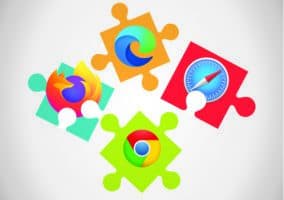It seems that Google has looked closely at competitor Firefox for a number of new features around the interface of web browser Chrome. After Chrome 69 got an interface similar to the old Firefox Australis interface, the developers of Chrome are now working on bringing two other Firefox functions to their own browser.
These are the tab groups and the scrollable tab bar. Both functions are still under development and it is not known exactly when they will be ready. The expectation is that it may take a while, but that developers will actively work on it is of course encouraging.
Tab groups
The first of the two new features was spotted by Chrome Story. That blog saw that a Chrome issue tracker was opened around a function called Tab Groups. The Google employee who opened up the problem didn’t write very much about how the function works. It was only revealed that it is a function in which users can visually organise tabs in very different groups, or arrange separate tabs for the different tasks.
This description is rather vague, but reminds us of a similar function that was brought to Firefox in the course of 2010. In addition, users were able to place hundreds of tabs in groups. The function was finally removed in 2015, as it was not used much, and then returned in 2017 with the new Quantum engine.
Scrolling through tabs
Then there is another feature that can be useful for Chrome users who have many tabs open. To make them clickable, Google is now making the tabs smaller and smaller. As a result, it is sometimes impossible to see which tab is which page. Firefox and Edge, among others, have already introduced a feature that allows users to scroll through their tabs to do something about it.
In the future, according to the site Techdows, the sun function will also come to Chrome. Peter Casting, one of the developers of Google Chrome, appears to have said that to a user on Reddit.
This news article was automatically translated from Dutch to give Techzine.eu a head start. All news articles after September 1, 2019 are written in native English and NOT translated. All our background stories are written in native English as well. For more information read our launch article.


















